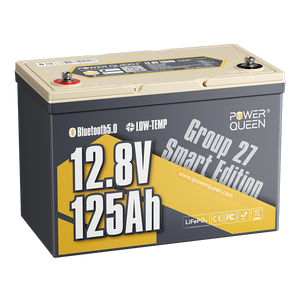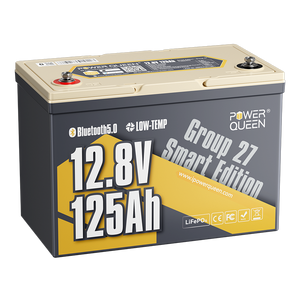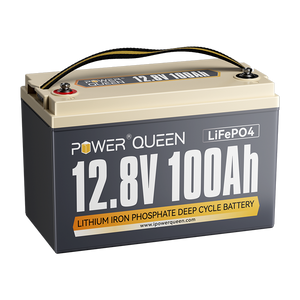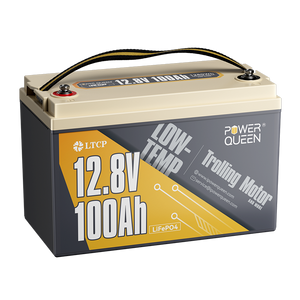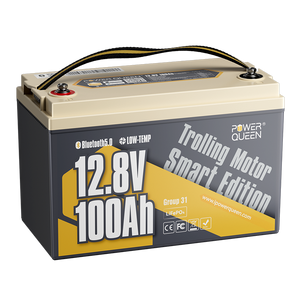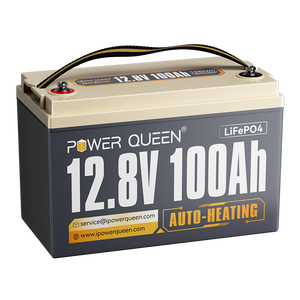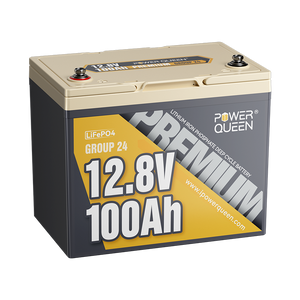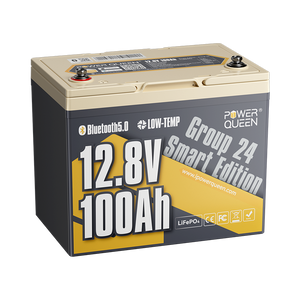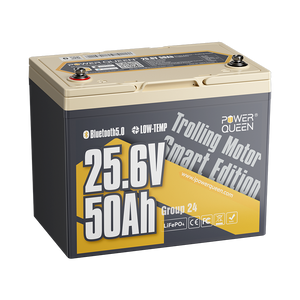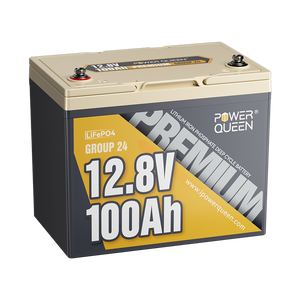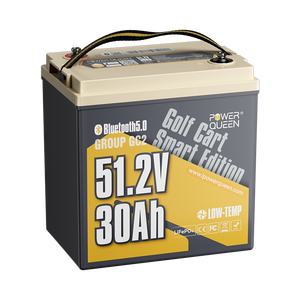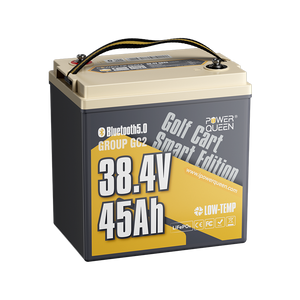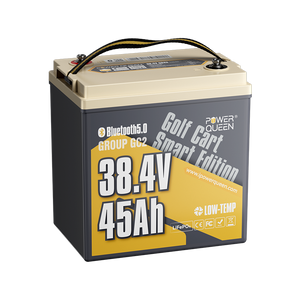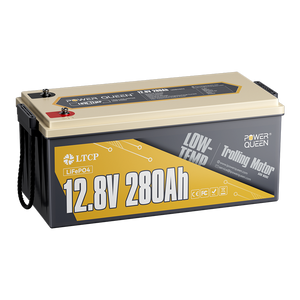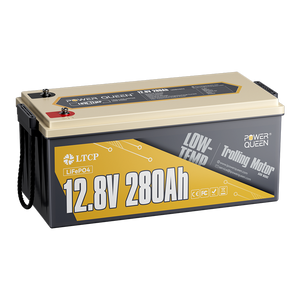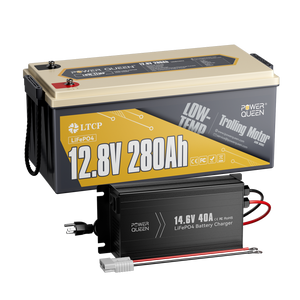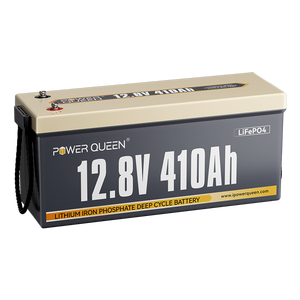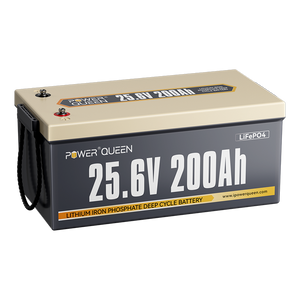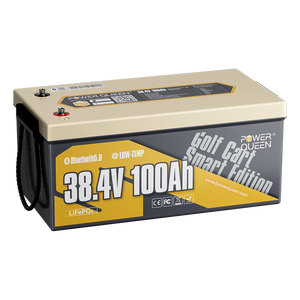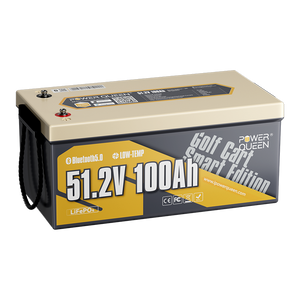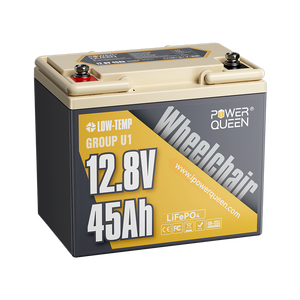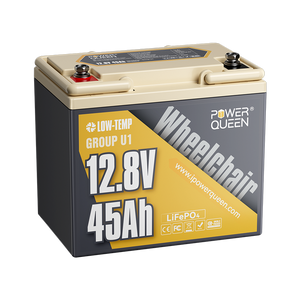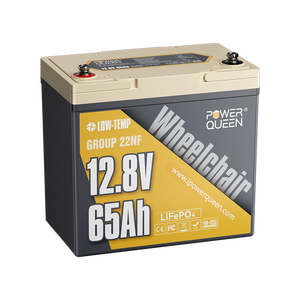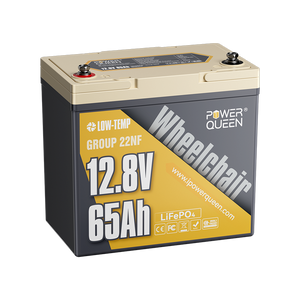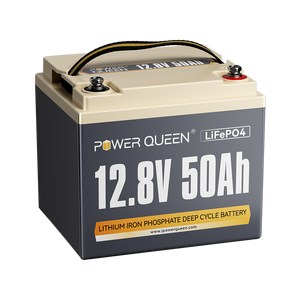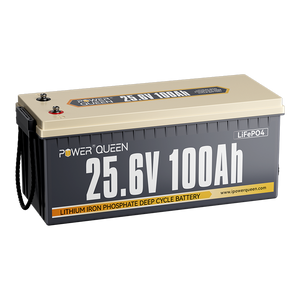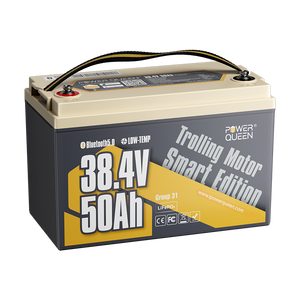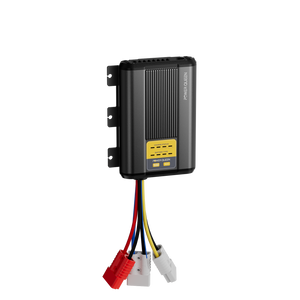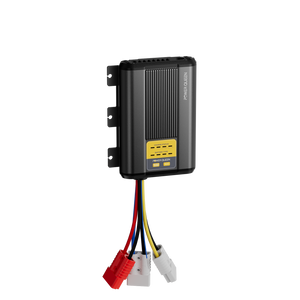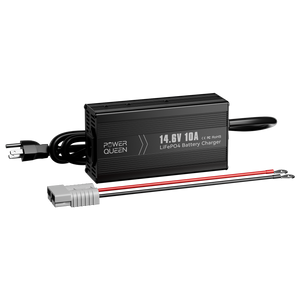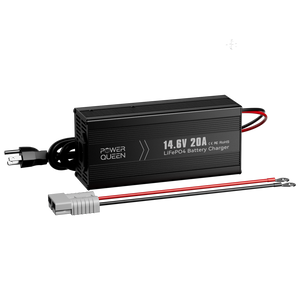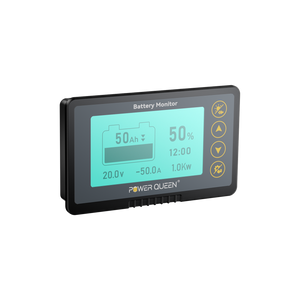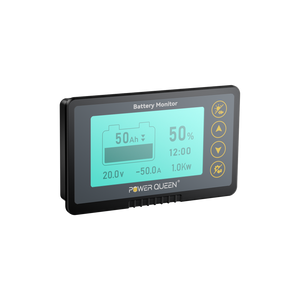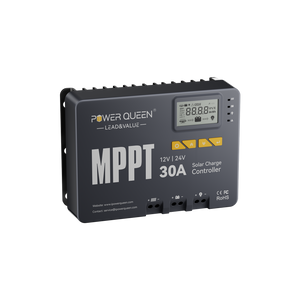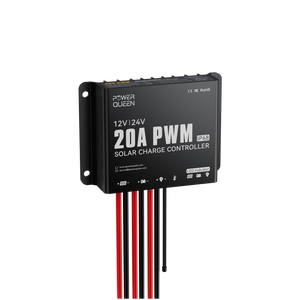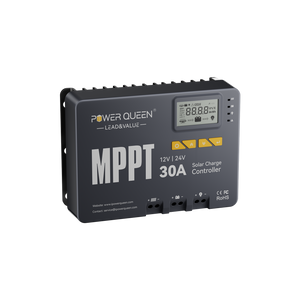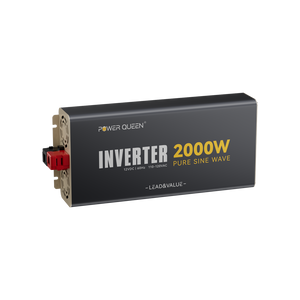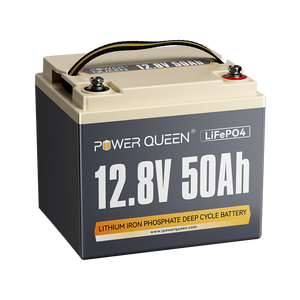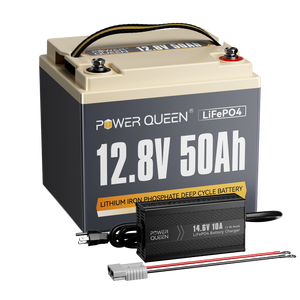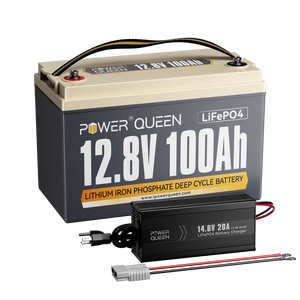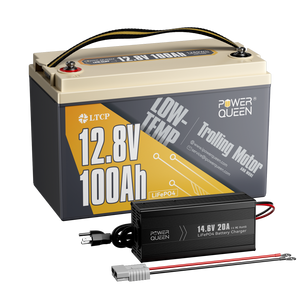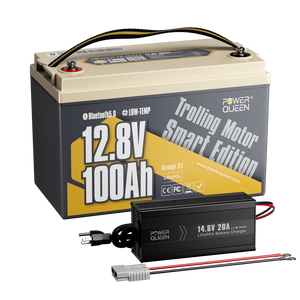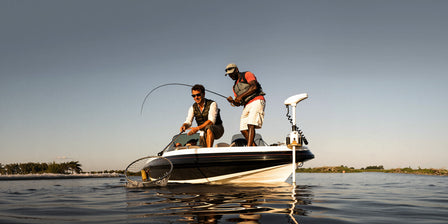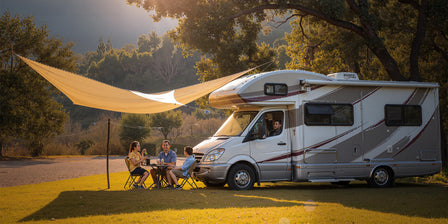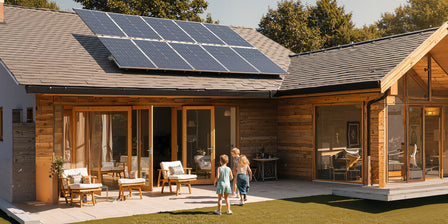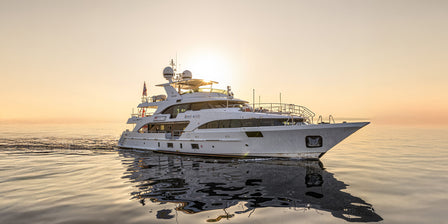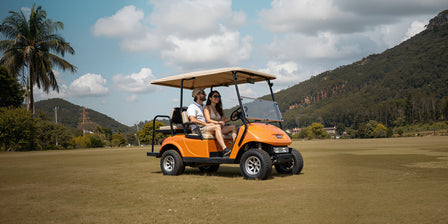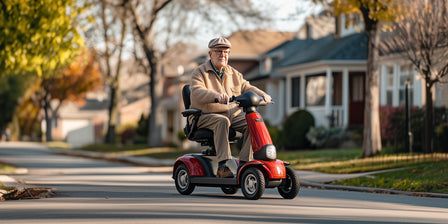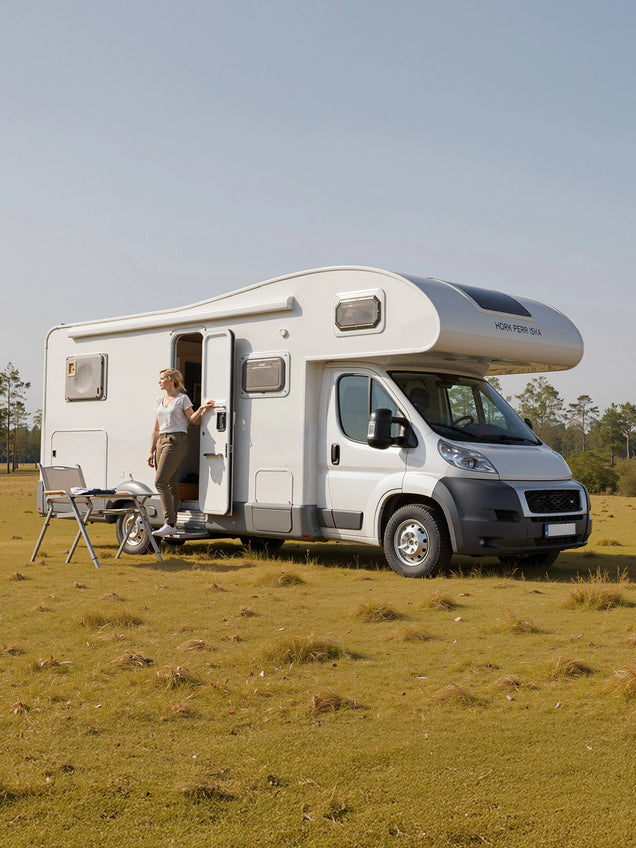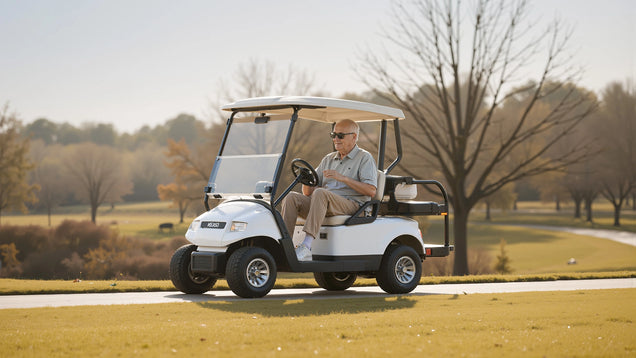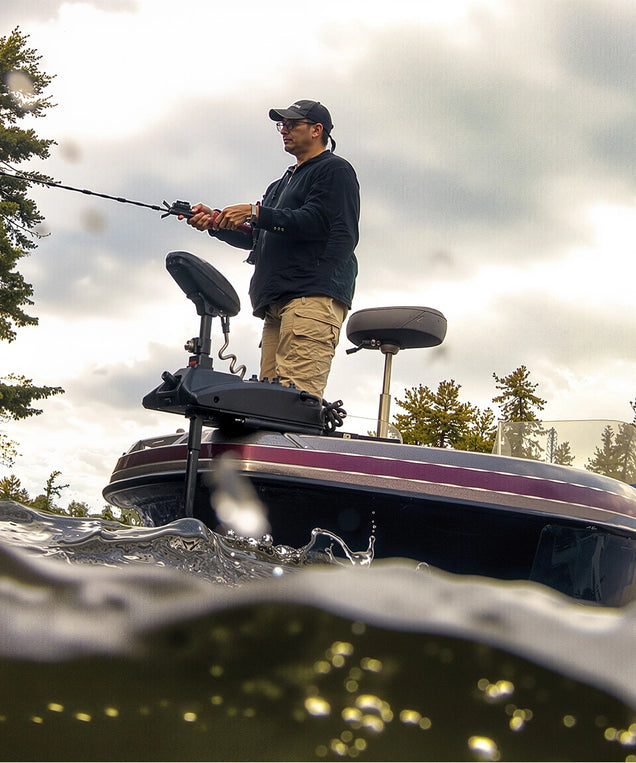Deep Cycle RV Battery: A Complete Guide
Deep cycle batteries are specifically designed to provide a reliable and continuous supply of power over an extended period of time and are an essential component in a variety of applications including marine environments, recreational vehicles (RVs), and renewable energy systems.
In this guide, we delve into the complexities of deep cycle batteries as we explore the technical underpinnings of deep cycle batteries, their key benefits, and their growing popularity in marine and RV environments for both hobbyists and professionals alike.
Table of Content
- Part 1. What Are Deep-Cycle Batteries used for
- Part 2. Types of Deep Cycle Batteries
- 2.1 Flooded Lead-Acid Batteries
- 2.2 Gel Lead-Acid Batteries
- 2.3 Absorbed Glass Mat (AGM) Batteries
- 2.4 Lithium-Ion Batteries
- Part 3. Deep Cycle Vs Regular Battery: What is the difference
- Part 4. 4 Best Deep Cycle RV Battery
- 4.1 Power Queen 12V Battery
- 4.2 Power Queen 24V Battery
- 4.3 Power Queen 36V Battery
- 4.4 Power Queen 48V Battery
- Part 5. In conclusion
- Part 6. FAQ
Part 1. What Are Deep-Cycle Batteries used for
Deep cycle batteries are specifically designed for applications that require a steady amount of power over a prolonged period. Unlike regular car batteries, which are built to provide a large burst of energy for starting engines, deep cycle batteries are engineered to provide sustained power and to be discharged and recharged repeatedly. Here are some of the primary uses of deep-cycle batteries:
- Recreational Vehicles (RVs): Deep cycle batteries are ideal for powering the electrical systems in RVs, including lighting, refrigeration, HVAC systems, and other appliances that require a constant power supply when the vehicle is not connected to external power sources.
- Marine Applications: In boats, deep cycle batteries power trolling motors, sonar, GPS systems, radios, and other electronic equipment. They are essential for marine applications because they can withstand the rigors of marine environments and provide reliable power for extended periods.
- Solar Power Systems: Deep cycle batteries are commonly used in residential and commercial solar power systems as storage for solar energy. They store the electricity generated by solar panels during the day, making it available for use at night or during overcast conditions.
- Golf Carts: These vehicles rely on deep-cycle batteries to provide the power needed for movement over golf courses. Deep cycle batteries are preferred because they can handle frequent charge and discharge cycles associated with stopping and starting.
- Electric Vehicles (EVs): Some electric vehicles use deep-cycle batteries to store and deliver the energy required for propulsion. These batteries must be durable and capable of frequent charging and deep discharging.
- Off-Grid Energy Systems: For homes and facilities not connected to the electrical grid, deep-cycle batteries serve as the primary storage component in off-grid renewable energy systems, including wind and hydropower.
- Portable Power Packs: Deep cycle batteries are used in portable power packs to provide electricity for camping, fieldwork, or emergency situations where grid power is unavailable.
- Backup Power Systems: Deep cycle batteries can also serve as backup power sources for critical systems in hospitals, data centers, and telecommunications facilities, ensuring continuity of operations during power outages.
Part 2. Types of Deep Cycle Batteries
Deep cycle batteries are designed for applications that require a continuous power output over extended periods. They are built to withstand repeated cycles of discharging and recharging without suffering significant degradation. Here’s an overview of the primary types of deep-cycle batteries:
2.1 Flooded Lead-Acid Batteries
These are the traditional type of deep cycle batteries, also known as wet cells. They contain a liquid electrolyte that freely moves within the battery. Flooded lead-acid batteries require regular maintenance, including monitoring electrolyte levels and adding water. They are typically the least expensive type of deep-cycle battery and are widely used due to their durability and cost-effectiveness.
2.2 Gel Lead-Acid Batteries
These batteries contain a gel electrolyte, which is a silica-based gel that immobilizes the electrolyte. Gel batteries are maintenance-free and offer good resistance to vibration and shock. They are less prone to evaporation and leakage than flooded batteries and perform well in varying temperatures. However, they are more sensitive to charging conditions and require specific charging equipment to prevent damage.
2.3 Absorbed Glass Mat (AGM) Batteries
AGM batteries feature a fiberglass mat that absorbs and contains the electrolyte, making them spill-proof and maintenance-free. They provide superior performance in terms of power density, life cycle, and resistance to vibrations. AGM batteries charge faster than gel and flooded batteries and can handle higher charge and discharge rates, making them a popular choice for marine, RV, and solar applications.
2.4 Lithium-Ion Batteries
Although more commonly associated with portable electronics and electric vehicles, lithium-ion batteries are also available in formats suitable for deep-cycle applications. These batteries offer a high energy density, a longer lifespan, and faster charging capabilities than lead-acid types. They are also maintenance-free and have a much lower self-discharge rate. Lithium iron phosphate (LiFePO4) is a common type of lithium-ion battery used in deep-cycle applications due to its stability and safety characteristics.
Each type of deep-cycle battery has its strengths and is suitable for different applications based on specific power requirements, environmental conditions, and budget considerations. Choosing the right type depends on factors like required maintenance, life expectancy, initial cost, and the specific energy needs of the application.
Part 3. Deep Cycle Vs Regular Battery: What is the difference
Deep cycle batteries and regular (lead-acid) batteries are designed for different purposes in vehicles and devices. Here’s how they differ:
- Capacity and Discharge: Deep cycle batteries can discharge up to 80% of their capacity repeatedly, while regular batteries shouldn’t discharge more than 20% to avoid damage.
- Design and Durability: Deep cycle batteries are designed for durability with thick plates that resist wear from frequent charging and discharging. Regular batteries have thinner plates suitable for short, high-energy bursts.
- Energy Supply: Deep cycle batteries provide a lower, steady stream of power for longer periods, whereas regular batteries offer high power quickly to start engines but can't maintain this for long without recharging.
- Usage: You’d use deep cycle batteries in situations where you need sustained power without recharging, like in solar energy systems or marine applications. Regular batteries are best for daily use in standard vehicles where the engine starts frequently.
In short, choose a deep-cycle battery for long-lasting power and a regular battery for short bursts of energy to start an engine. Each serves a unique role, ensuring optimal performance in different settings.
Part 4. 4 Best Deep Cycle RV Battery
4.1 Power Queen 12V Battery
Power Queen 12V 100Ah Group 24 deep cycle lithium battery, ideal for RVs, camping, solar systems, and marine activities, fitting easily into tight spaces and compatible with most setups. It’s an upgrade from traditional lead-acid batteries.
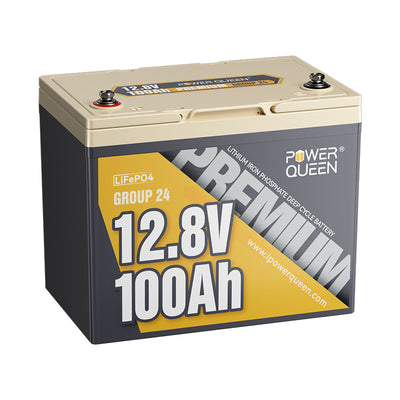

Benefits:
- Energy Efficiency: Powered by four A-rated cells, delivering high performance across various applications.
- Safety First: The 100A Battery Management System prevents overcharging, overheating, and short circuits.
- Long Life: Over 4000 cycles at 100% DOD, reducing energy bills and environmental impact.
- Flexible Fit: Compatible with 24, 27, and 31-size battery boxes.
- Extended Warranty: 10-year lifespan and 5-year warranty, with 24/7 technical support.
- Cost-Effective: Economical alternative to traditional power sources, saving energy costs.
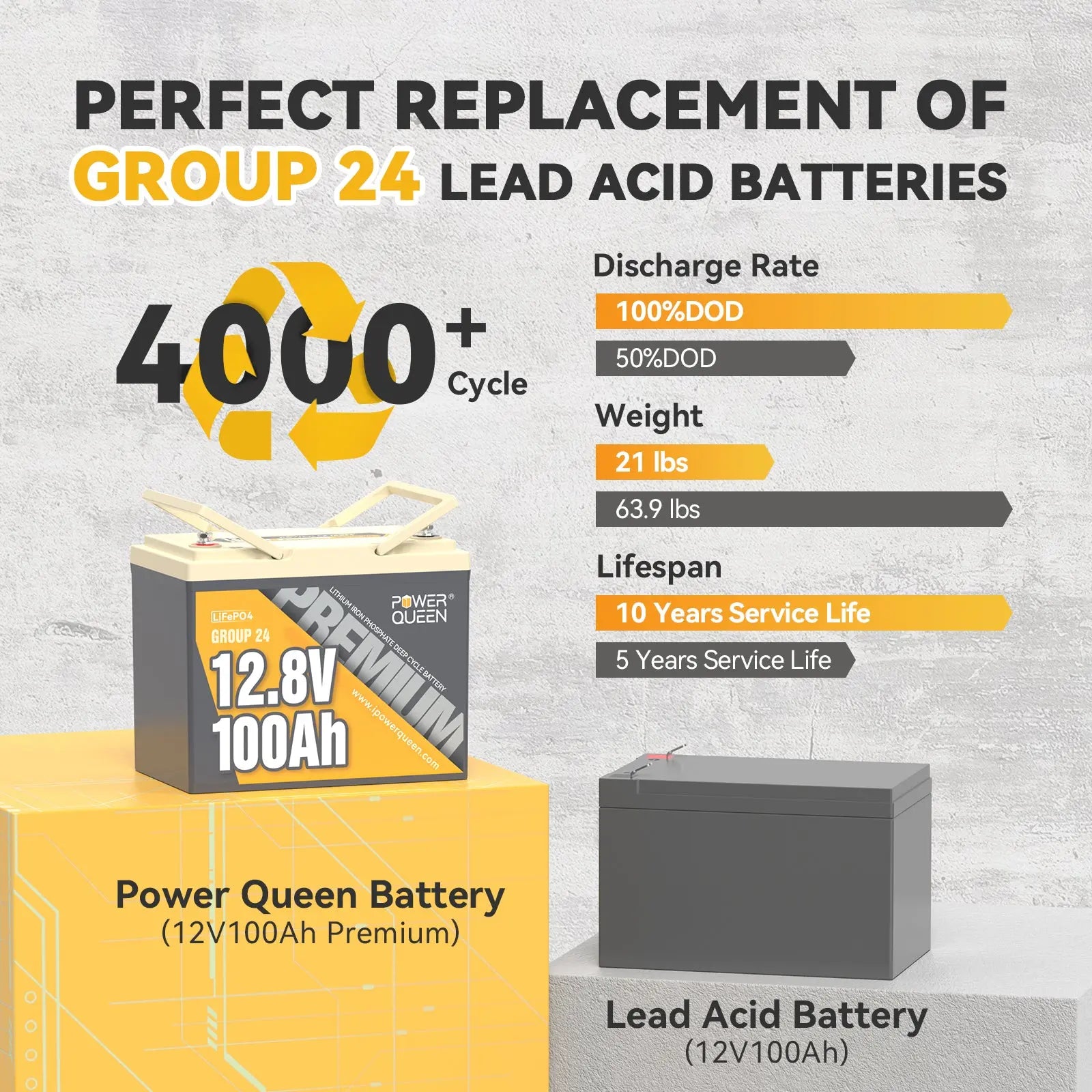
Considerations: Not suitable for older models or high-power tools like electric jacks and 4WD lawnmowers.
4.2 Power Queen 24V Battery
Power Queen 24V lithium batteries provide safe, reliable, and space-efficient energy storage, perfect for off-grid living, RVs, or backup power. Their advanced features and flexible design make them a great choice for long-term energy needs.
Ideal for: Off-grid living, RVs, and backup power during outages, offering a space-saving, high-capacity solution by combining smaller units into one.
Benefits:
- High Capacity: Efficient energy storage for long-term use.
- Advanced Safety: Equipped with a Battery Management System (BMS) for safe and reliable operation.
- Customizable: Multiple configuration options for flexible setups.
- Warranty & Support: 5-year warranty and fast U.S. support for peace of mind.
- Models: The three models of 24V batteries offered by Power Queen include: 24V 50Ah: 1280Wh capacity ;24V 100Ah: 2560Wh capacity;24V 200Ah: 5120Wh capacity
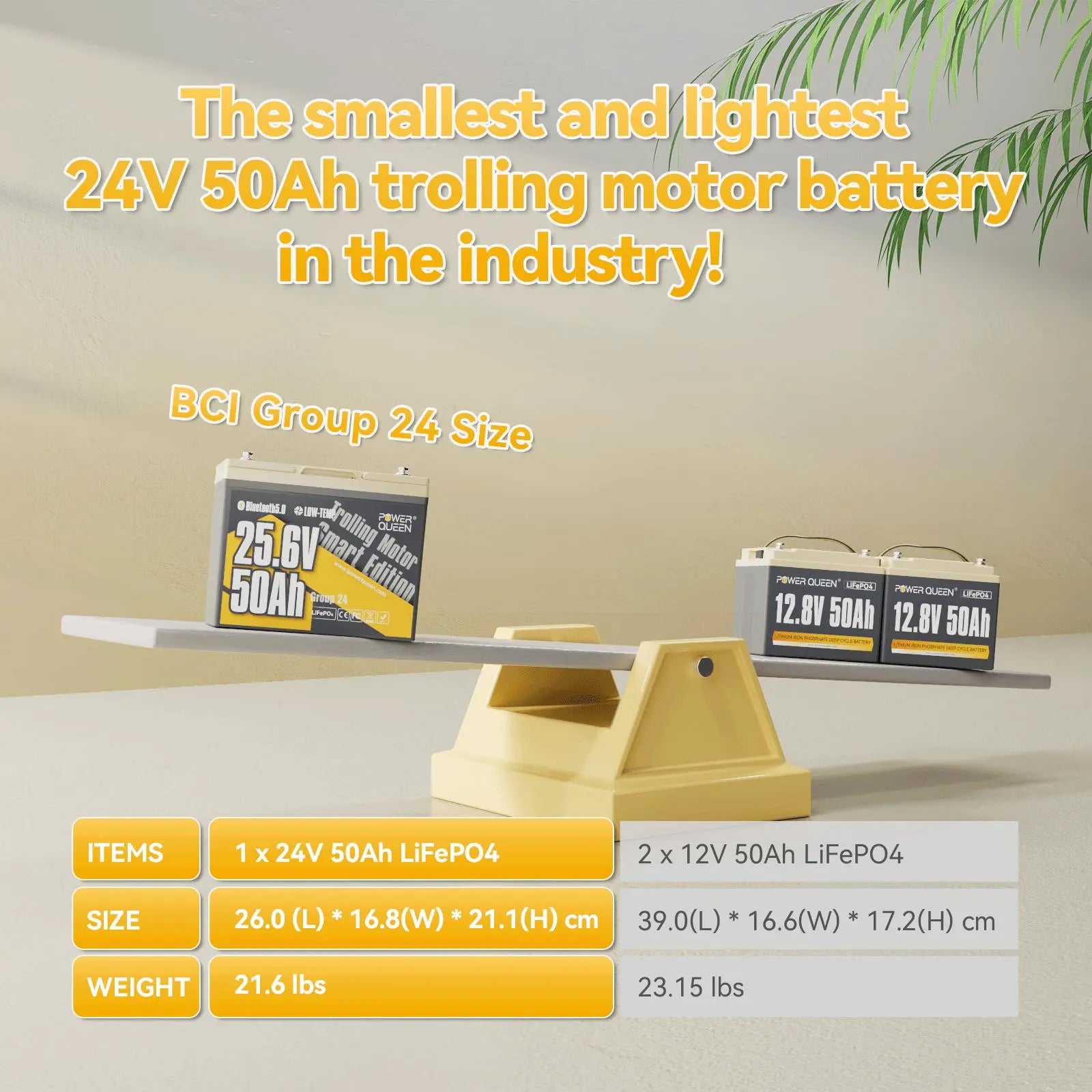
4.3 Power Queen 36V Battery
The Power Queen 36V lithium batteries are a robust solution for marine and off-grid power needs, offering performance, safety, and space efficiency. There are two specifications: 50Ah and 100Ah, with capacities of 1920Wh and 3840Wh respectively. Ideal for Marine applications, trolling motors, electric outboards, solar storage, and RVs.
Benefits:
- High Performance: Powerful energy storage for heavy-duty use.
- Real-Time Monitoring: Bluetooth 5.0 for live battery tracking.
- Durable & Safe: Built-in Battery Management System (BMS) ensures safe operation in extreme conditions.
- Fast Charging: Minimizes downtime for uninterrupted use.
- Warranty & Support: 5-year warranty, meeting stringent safety standards.
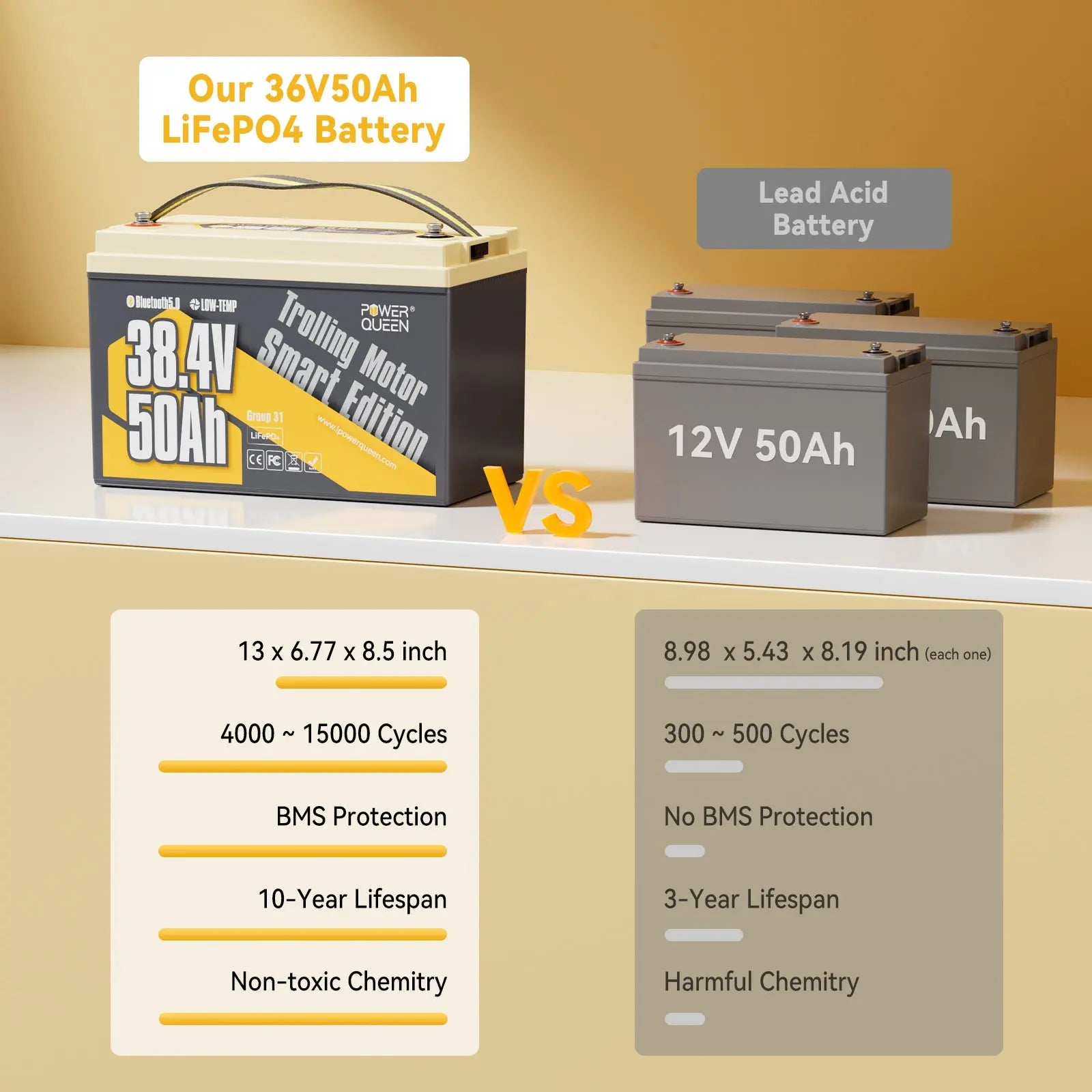
4.4 Power Queen 48V Battery
The Power Queen 48V lithium battery is perfect for golf cart owners seeking a powerful, low-maintenance upgrade that improves performance and range. Ideal for Golf carts, LSVs, ATVs, NEVs, and other electric vehicles.
Benefits:
- Extended Range: Up to 47 miles per charge for enhanced vehicle performance.
- Smart Monitoring: Bluetooth 5.0 for real-time monitoring via mobile app.
- Long-Lasting: Over 4000 cycles with a 10-year lifespan, reducing maintenance and costs.
- High Capacity & Safety: 200A BMS ensures safe, reliable operation.
- Warranty & Support: 5-year warranty and full technical support.
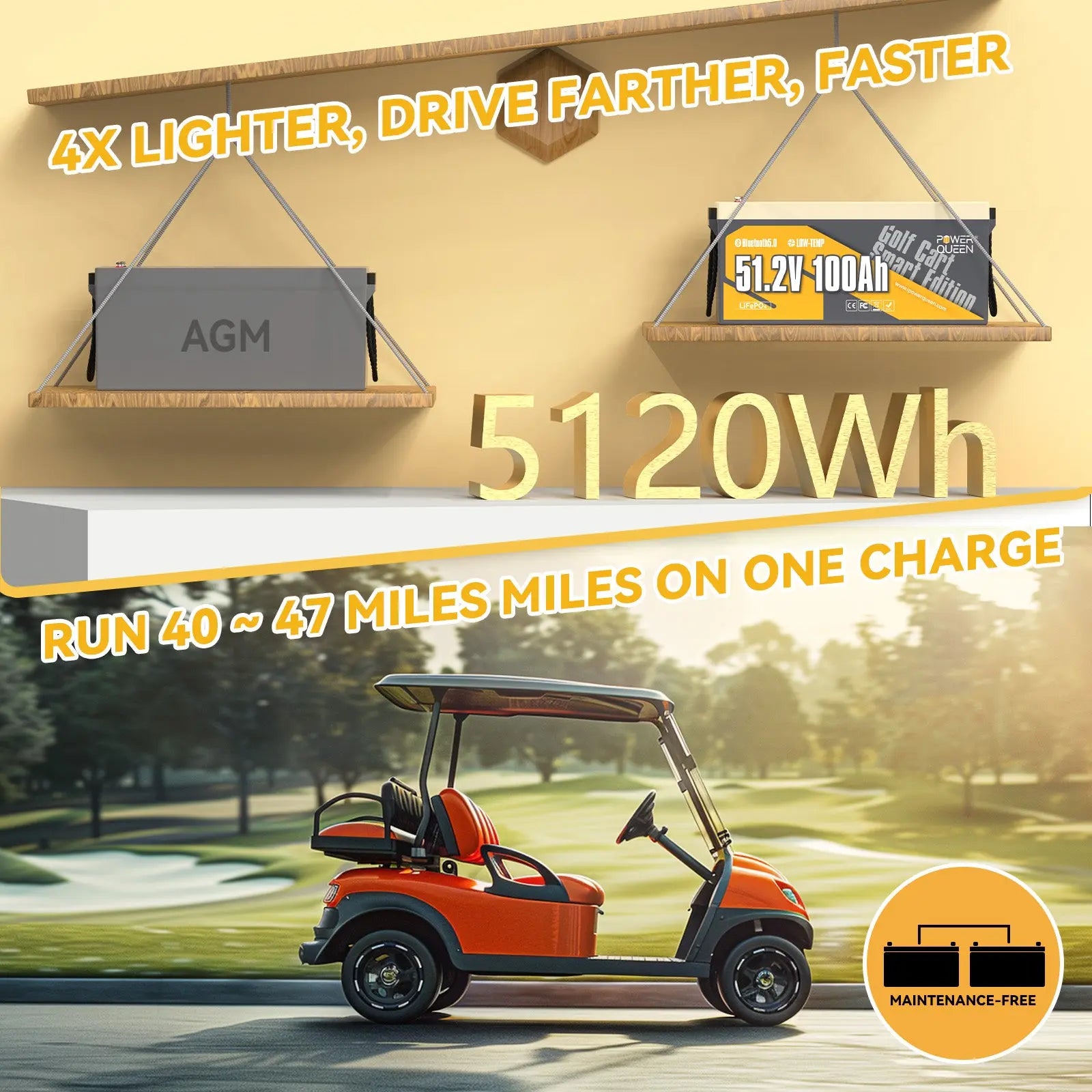
Part 5. In conclusion
Choosing the ideal deep-cycle battery for your RV, marine, or off-grid needs is a significant decision that impacts both performance and efficiency. If you're unsure about which battery to select or have any questions regarding setup and maintenance, our team is ready to assist you. Reach out to us through our contact page, and we'll ensure you find the perfect fit to power your adventures, guaranteeing reliability and sustainability wherever you go.
Part 6. FAQ
6.1 Do Deep-Cycle Batteries need a dedicated charger?
Yes, deep cycle batteries require a dedicated charger, ideally a smart charger specifically designed for them. Deep cycle batteries differ from regular batteries in that they are not built to withstand the high heat and rapid charging rates provided by standard battery chargers. Using the appropriate charger helps prevent damage and extends the battery’s lifespan by ensuring it charges at a rate that safeguards its intricate chemistry.
6.2 How long do Deep-Cycle RV Batteries last?
The lifespan of a deep cycle RV battery typically reaches up to six years, assuming it receives proper care and regular, correct charging. The longevity largely depends on how frequently the battery is used and ensuring it isn't subjected to damaging charging practices. Regular maintenance and attentive charging are crucial to maximizing the battery's effective service life.
6.3 Is a Deep-Cycle Battery Better for an RV?
Yes, a deep-cycle battery is generally better for an RV. Unlike regular car batteries, which provide short bursts of energy, deep-cycle batteries are designed to deliver steady power over an extended period. This makes them ideal for RVs, as they can handle repeated cycles of charging and discharging, powering appliances, lights, and other systems without getting damaged easily. They are also more durable and reliable for long-term use in RVs, especially when boondocking or camping without electrical hookups.
6.4 What Kills a Deep-Cycle Battery?
Several factors can shorten the lifespan of a deep-cycle battery, with overcharging being one of the most common causes. Overcharging occurs when the battery is left plugged in for too long or charged at a voltage higher than recommended, causing the electrolyte to overheat and damage the internal components.
In addition to overcharging, deep discharge (draining the battery completely), undercharging (not fully recharging the battery), and exposure to extreme temperatures can also damage the battery over time. Proper maintenance, regular monitoring, and using the correct charger can help extend the life of a deep-cycle battery.
